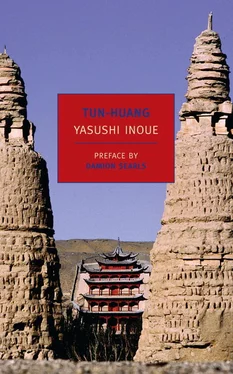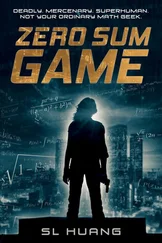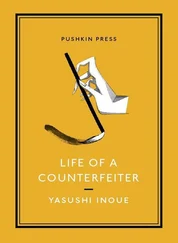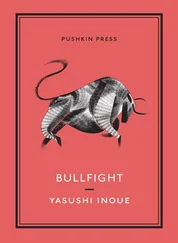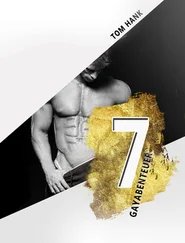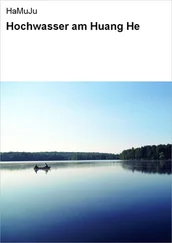“Where did you get this?” Kuang, unusually, spoke gently.
Hsing-te remained silent. He didn’t want to tell this scoundrel he had received it from the Uighur princess.
“This is very valuable. You’d better take good care of it.” What Kuang was thinking was not clear, but he returned the necklace and walked off, as if he had forgotten all about thrashing Hsing-te.
The necklace clasp was broken and it had become a long strand, but it was still intact and not a single stone seemed to have been lost.
After this, Kuang’s attitude toward Hsing-te changed completely and he became gentler with him. Hsing-te was the only one he didn’t shout at. From time to time he would approach Hsing-te to question him about the source of the necklace.
Surprisingly, Hsing-te gained privileges which should have been his all along. The brutal young man had become as gentle as if he had been castrated. Hsing-te did as he wished. After all, what with the weapons of twenty men Wang-li had lent, and the fifty camels Yen-hui had contributed, Hsing-te had every right to receive special treatment.
Hsing-te knew a scoundrel like Kuang could easily steal the necklace. That he didn’t was probably because he wanted to learn where more of them could be obtained.
In Kan-chou they spent three days at the camel station. During that time, Hsing-te once climbed the wall at the southwestern corner of the fortress. From the top, he could see in the distance part of the marketplace outside the South Gate. The rest was a vast expanse of grassy plain. He looked down at the open space by the wall. People walking about looked as small as peas. From there he walked toward the western part of the wall, where the Uighur princess had thrown herself off.
Hsing-te thought of how powerless he had been in the presence of the princess, who had cut her own life short for him, and his sorrow increased. He continued walking along the wall for about half an hour, and it was then that he decided he would dedicate to her all the work that lay before him after his return to Kua-chou. He would translate the Chinese sutras into Hsi-hsia for Yen-hui, but as an offering for the repose of her soul.
With this thought, he suddenly became happy. The work of translating the sutras into Hsi-hsia had interested him before, but with this new incentive, it took on an altogether different meaning.
As the fierce sun beat down, Hsing-te continued his walk. Sweat poured from his arms, his legs, his neck, from his whole body.
I humbly revere the Buddhas of the Three Realms,
And am converted to the teachings of the Buddhas of the Ten Directions.
I now take the Universal Vows
And chant the Diamond Sutra
To requite the great favors received
From Heaven and earth, my parents, and my country-men
And to save the deceased from the suffering in the Three Hells.
And when people see or hear the Truth
They will all follow in the footsteps of Buddha
And will thus devote the rest of their lives…
The invocation of the Diamond Sutra poured out of Hsing-te’s mouth. And as he chanted these verses, his eyes unexpectedly filled with tears. Mingled with beads of sweat, the tears rolled down his cheeks and fell onto the red mud of the city wall.
From the summer of 1033 until the following summer, Hsing-te stayed away from his unit with the Kua-chou ruler, Yen-hui, devoting his time to translating sutras into Hsi-hsia. One wing of Yen-hui’s palace had been set aside for the project. By the end of autumn, the six Chinese had arrived from Hsing-ch’ing and they worked steadily from morning till night. Together, the seven decided each man’s task. They divided the work into sections dealing with Nirvana, Wisdom, Lotus Sutra, Agama Sutra, Sastra, and Dalai Lama, and each man took charge of one.
In Kua-chou there were ninety days of bitter cold, fifty days of extreme heat, and overall very little rain. Its notorious winds were strongest during winter and spring, and on several days the populace almost suffocated from sandstorms. At such times it was dark both day and night.
Hsing-te was in charge of the Diamond Sutra, which he had first read in Su-chou. The work progressed slowly, but while Hsing-te was absorbed, he forgot all else.
From early summer on, Wang-li’s troops began to leave the city more frequently to fight the Turfans, who were gradually infesting the area. Now and then prisoners of war were brought in, sometimes Turfans, and at others Uighurs. No matter how minor the skirmish, Wang-li personally led his troops into each battle.
Whenever Wang-li was not out fighting the Turfans, Hsing-te would visit him at his luxurious quarters every three days.
At the beginning of autumn, Hsing-te visited Wang-li upon his return from a battle which had lasted many days. At such times, Hsing-te was attracted by the suggestion of excitement in his face, his behavior, and his way of speaking. Wang-li never spoke about battles or developments in the war. Hsing-te would question him on occasion, but Wang-li would only give vague answers, and would call for “Chiao-chiao,” the young Chinese girl who served him, and have her bring tea. Wang-li seemed to love the girl, and she, in turn, seemed to be serving him with devotion.
Whenever Hsing-te visited Wang-li, he would hear him call Chiao-chiao many times while he was there. Just as there was a distinctive quality to his shout when Wang-li ordered his men to attack, so, too, his voice had a special tone when he called Chiao-chiao.
That particular day Hsing-te was seated opposite his commander, who was still in uniform. It was an unusually windless day, and the gentle autumn sun falling on the inner courtyard could be seen through the window. After they had drunk their tea, Wang-li proceeded to take off his military clothes, removing one layer after another. Chiao-chiao lovingly assisted him from behind.
“I wonder what this is?” As Chiao-chiao spoke in her clear voice, Hsing-te looked toward her. She held Wang-li’s clothes in one hand and a necklace in the other. Hsing-te watched him slowly turn toward Chiao-chiao. The instant Wang-li recognized what she held in her hand, his expression changed and he shouted harshly. “Don’t touch that!” He had spoken so roughly that even Hsing-te was startled by his vehemence. The young girl hurriedly set the necklace on the table and looked blankly at Wang-li. Wang-li picked it up and took it to an inner chamber. When he returned he had regained his composure, and he again addressed Chiao-chiao in his special tone and asked her to bring more tea.
Hsing-te felt unsettled for the rest of that day, even after he returned to his own quarters. He was almost certain that the necklace Wang-li had was just like his own. He had seen it only for a brief instant when Chiao-chiao had held it, but he didn’t see how he could be mistaken. He recalled that the Uighur princess had worn two identical necklaces around her neck; he possessed one and he guessed that Wang-li had the other. If so, he wondered how Wang-li had obtained his. Had the Uighur princess given Wang-li a strand just as she had given him one? Or had Wang-li taken it from her?
Hsing-te could think of nothing else except the necklace. But no matter how long he pondered, there was no way to learn the answer other than by asking Wang-li himself.
Late that night Hsing-te was finally able to free himself from his obsession with this question. As he thought about it, he realized that it was not only the necklace he was ignorant about. He was aware of how intensely Wang-li had loved the girl and still loved her, but he knew nothing else about their relationship. In addition, he felt he had no right to probe into it. He had made a promise to that girl and had broken it. Despite that, hadn’t she thrown herself off the Kan-chou wall for him? At least, Hsing-te was firmly convinced of this. Wasn’t it enough that she had died for him? There was no need for him to question anything else.
Читать дальше
